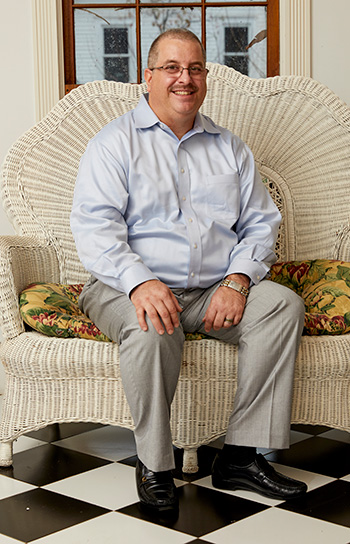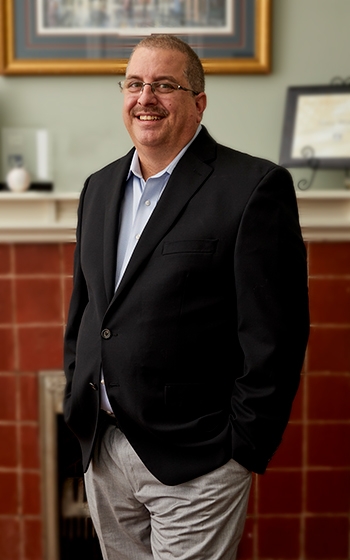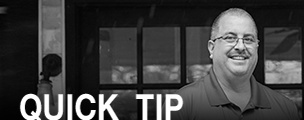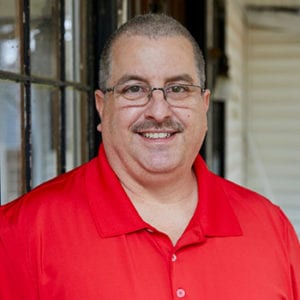Bringing a high standard of professionalism to client relationships
Bringing a high standard of professionalism to client relationships

Gary Wargo • McDonough, GA
Mid Georgia Financial Group, LLC • Cape Securities, Inc.
Read full biography below
Proactive Advisor Magazine: Gary, talk about your career progression and how you see your role in working with clients.
I came into the financial-services industry after working for several years in the hospitality and airline industries. I studied business administration in college, was always very interested in the financial markets, and had been actively investing my own accounts for several years. I decided that it would make the most sense to get experience with a well-established national financial firm that offered strong training and a supportive structure. I worked for that firm for about seven years, learned quite a lot, and, frankly, hit all my personal goals at a rapid pace.
I also developed a good relationship with an experienced financial advisor who became a mentor. He taught me a great deal about how to build deep client relationships and was an advocate of a rigorous planning process. I took this to heart, and that is at the core of everything our firm does. We are a full-service financial firm committed to helping people pursue their financial goals. We use our process to help clients identify their goals and make sound financial decisions that will positively impact their financial futures.
I personally strive to bring high standards of integrity and professionalism to our relationships with clients. Education is also a very important aspect of what we do, and I am an active speaker at a variety of events in our local community. That educational aspect carries through to our client relationships. I want clients to take ownership of their decisions and to understand the pros and cons of taking a specific course of action in their planning and implementation. While I think the relationship with a client should be an enjoyable experience, I also think that examining hard truths about a financial situation is part of my fiduciary responsibility. I work with clients to overcome hurdles and strive to find ways to reach positive outcomes.
Talk about your planning process.
 When I became an independent advisor in 2012, one of my main goals was to make sure I could offer clients a holistic, nonbiased financial-planning and investment-advisory approach. I take my fiduciary responsibility very seriously, and I think the way to deliver on that is to have a process-oriented—as opposed to a transaction-oriented—relationship.
When I became an independent advisor in 2012, one of my main goals was to make sure I could offer clients a holistic, nonbiased financial-planning and investment-advisory approach. I take my fiduciary responsibility very seriously, and I think the way to deliver on that is to have a process-oriented—as opposed to a transaction-oriented—relationship.
My mentor had stressed to me how the discovery piece of the client relationship is critically important. That covers all of the normal data gathering that one might expect, but also goes much deeper and tries to get at the fullest possible understanding of what is driving the expectations and goals of a client or client family. I tell clients that they might be surprised by how many questions I ask. The conversation is going to be about their thoughts and feelings—I won’t be dominating the conversation. The ability to ask probing questions in a collaborative way, truly listening to the answers, and following up are important skills I have worked to develop.
As we move on from the discovery phase, I use a comprehensive software system to input data and examine various solutions for clients. While the mechanics of the process can be sophisticated, the core concepts are not hard for me to explain. Essentially, clients are coming to the table with a current income level, a certain amount of assets that have been acquired and also probably some debt, retirement plans or pensions, and additional expected streams of future income such as Social Security. They also have goals that we need to work through in terms of what they think an acceptable level of income in retirement might be and other objectives such as funding college educations, purchasing a second home or relocating, or leaving a legacy to family members or a church or charity. We identify the gaps between their goals and their resources and then start identifying solutions to get them to where they want to go.
Here is where collaboration and honest discussion are so important. Clients may be able to afford goal A, such as sending their child to a private college, but that could mean they might have to delay goal B, moving their retirement out for some years, or putting off that dream of owning a second home. When people are given the true numbers and can examine the trade-offs, we can jointly come to appropriate decisions. Hopefully, they can achieve all of their goals. But the most important thing is to set priorities and work toward a plan that systemically gets them moving toward a realistic course of action and implementation. The result is a formal plan document that we have mutually agreed upon and can use as a financial road map, revisiting it periodically to make adjustments or to consider new developments in a family’s life circumstances.
When it comes to implementation, what is your overall investment philosophy?
 When we have established the parameters of the financial plan, we then structure an investment plan that fits with a client’s time horizon, risk profile, and overall objectives. Wealth preservation, risk management, and growth are all important considerations as we review investment plan options. I would not necessarily characterize my approach as conservative, but I have a healthy appreciation for the damage that down markets can do to a client’s portfolio as they prepare for retirement or when they are already in retirement. This approach has served our practice well, and my clients, in general, were able to weather the credit crisis in decent shape.
When we have established the parameters of the financial plan, we then structure an investment plan that fits with a client’s time horizon, risk profile, and overall objectives. Wealth preservation, risk management, and growth are all important considerations as we review investment plan options. I would not necessarily characterize my approach as conservative, but I have a healthy appreciation for the damage that down markets can do to a client’s portfolio as they prepare for retirement or when they are already in retirement. This approach has served our practice well, and my clients, in general, were able to weather the credit crisis in decent shape.
I usually see a role in many clients’ retirement plans for some sort of guaranteed-income solution in the form of annuities. With all of the uncertainty regarding the stability of pension funding and even Social Security itself, I think this can be a prudent course of action. Additionally, I am an advocate for active money management. I work with a few outside professional money managers who use rules-based strategies that are designed to adapt to changing market conditions.
One objective of these strategies is to smooth out some of the volatility of the markets while also achieving competitive returns. I believe the old model of using a passive investing approach may have worked decently up until the late 1990s, but it has not since then. What happens if a client is planning on retiring in 10 years and a massive drop in the market occurs eight years from now? Their account could be 40% to 50% lower if they are using a passive approach—that is really no way to face retirement after working a lifetime to accumulate assets.
We are more interested in setting up a goals-based investment approach that will attempt to deliver the returns over a long time frame for a client that will help them meet their financial needs. Conceptually, that sort of managed-money approach will not attempt to outperform the market in very good market years, but neither should it see the major drawdowns that have occurred throughout history. I work hard to select professional money managers who can deliver risk-managed investment strategies. I see my role in managing the managers, making sure their strategies are performing in accordance with their objectives. One of our managers does an excellent job not only in a strategic sense, but they also have a user-friendly platform and a client-reporting methodology that tracks progress toward a client’s specific investment objectives. That has proven to be a very attractive feature for my clients.
“I work hard to select professional money managers who can deliver risk-managed investment strategies.”
What advice would you give to a young financial advisor just entering the business?
That is not a hypothetical question since I have trained many young advisors. I come from a family that played sports at a high competitive level, and I was a pretty good athlete myself. I think a lot of the lessons from the sports world can apply to the business world. Number one is to be professional at all times, and professionalism has many different dimensions. Second is the importance of being proactive, not reactive. That necessitates a strong service orientation and rigorous planning, and also reflects my investment philosophy. A third factor is simply the emphasis I place on hard work, preparation, and striving for continual self-improvement. I tell people just starting in the business that while a professional athlete might make it look easy on game day, countless hours of training, instruction, and preparation go into that performance. That is how I believe they should treat their own career, and it is how I have tried to establish high standards for myself and our practice.

CRM solution facilitates client touch points
Gary Wargo nurtures the growth of his practice through client-retention efforts, speaking engagements, networking in the community, and using a sophisticated customer relationship management (CRM) platform. His CRM system facilitates client touch points and allows him to do the following:
- Segregate clients by assets under management, creating A, B, C, and D classifications.
- Schedule client review sessions according to these classifications.
- Keep track of important client dates and trigger follow-up communications as appropriate.
- Efficiently monitor critical client authorizations, signatures, and requirements.
- Integrate client accounts from a variety of sources and generate reports and billing.
- Provide a user-friendly client portal.
 Gary Wargo is a senior partner at Mid Georgia Financial Group, LLC, located in McDonough, Georgia. Mr. Wargo’s firm provides a wide range of financial products and services to individuals and business owners. He works extensively with preretirees and retirees on retirement and investment planning, as well as addressing the varied financial needs of small-business owners.
Gary Wargo is a senior partner at Mid Georgia Financial Group, LLC, located in McDonough, Georgia. Mr. Wargo’s firm provides a wide range of financial products and services to individuals and business owners. He works extensively with preretirees and retirees on retirement and investment planning, as well as addressing the varied financial needs of small-business owners.
One of seven children, Mr. Wargo was raised in the Pittsburgh area in “the heart of what used to be thriving steel country.” He says his parents “instilled an appreciation for hard work and inspired all of us to strive for ambitious goals.” Mr. Wargo graduated from Thiel College, where he studied business administration and history. He worked for several years in the hospitality and airline industries before “finding a fulfilling career match” in the financial-services industry. He first worked with a large national firm where he says he received strong training and mentorship. He established his practice in a relatively short amount of time and, after seven years, decided to become an independent financial advisor. He started Mid Georgia Financial Group, LLC, in 2011.
Mr. Wargo is an avid supporter of civic, charitable, and community organizations. He is involved with the Henry County Chamber of Commerce and Rotary Club, as well as several other civic and fraternal organizations. He actively supports International Women of H.O.P.E., Shriners Hospitals for Children, and Children’s Healthcare of Atlanta. He is especially proud of his family’s involvement with the GA Haitian-American Chamber of Commerce, which promotes a variety of business, cultural, and humanitarian efforts for the Haitian community in Georgia and Haiti. Mr. Wargo and his wife have three adult children, and he says they are both “extremely proud of their accomplishments.”
Disclosure: Securities offered through Cape Securities, Inc., member FINRA, SIPC, and MSRB. Advisory services offered through Cape Investment Advisory, Inc. Clearing services provided by Hilltop Securities.
Photography by Scott Areman

